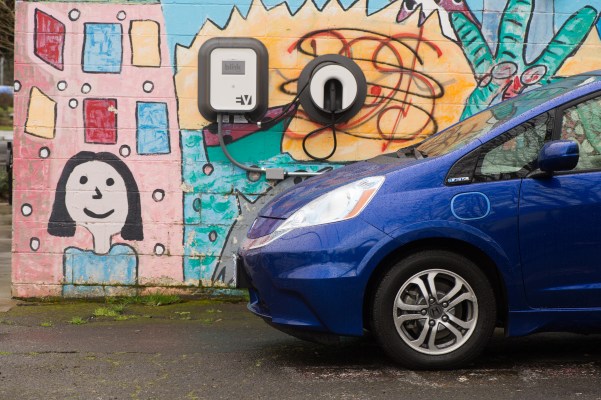With a new electric vehicle initiative, Uber is finally speaking Portland’s language. The company shares a rocky history with the famously green city, but that won’t stop Portland from becoming the first U.S. market where Uber will push a set benchmarks for electrifying its fleet.
For the Portland version of Uber Electric, a program that the company rolled out to London last year, the ride-hailing company will team up with Drive Oregon, a partially state-funded nonprofit that seeks to get more electric vehicles on the road. With a combination of incentives and educational initiatives, Uber aims to make 10 percent of its Oregon fleet electric by 2019, statewide. Right now, the company says that 100 of the 6,000 active Portland Uber drivers use electric vehicles, so it has considerable work to do (beyond all of that other work it has to do).
To reach its 10 percent goal, Uber is pursuing a range of local collaborations. The company will work with Portland’s Black Parent Initiative to expand electric vehicle access to underserved communities, Cynergy E-Bikes to connect UberEATS couriers with electric bikes and Arcimoto, an Oregon-based EV company. Uber is expected to use its auto-lease subsidiary Xchange Leasing to offer in-house deals to drivers wishing to get behind the wheel of an EV.
“The City of Portland has also adopted some of the nation’s most aggressive measures to reduce greenhouse gas emissions,” Uber stated about its mission in the city. “Uber Electric will help Portland and the state of Oregon achieve these important clean energy goals.”
Uber isn’t the only alternative transportation company going electric in Portland. Late last year, the city became the second market for BMW’s ReachNow, a Zipcar-like service with a focus on electric vehicles, and a previous initiative by Car2Go that sprinkled electric smart cars onto its rainy streets all the way back in 2012.
In a world where a quarter of cars could drive themselves by 2030, Uber’s decision to take two years to recruit a few hundred EV drivers is more incremental than revolutionary. Still, it shows that the company is implementing both long- and short-term strategies for rethinking transportation, even in the midst of one of the worst PR crises the tech industry has ever known.
